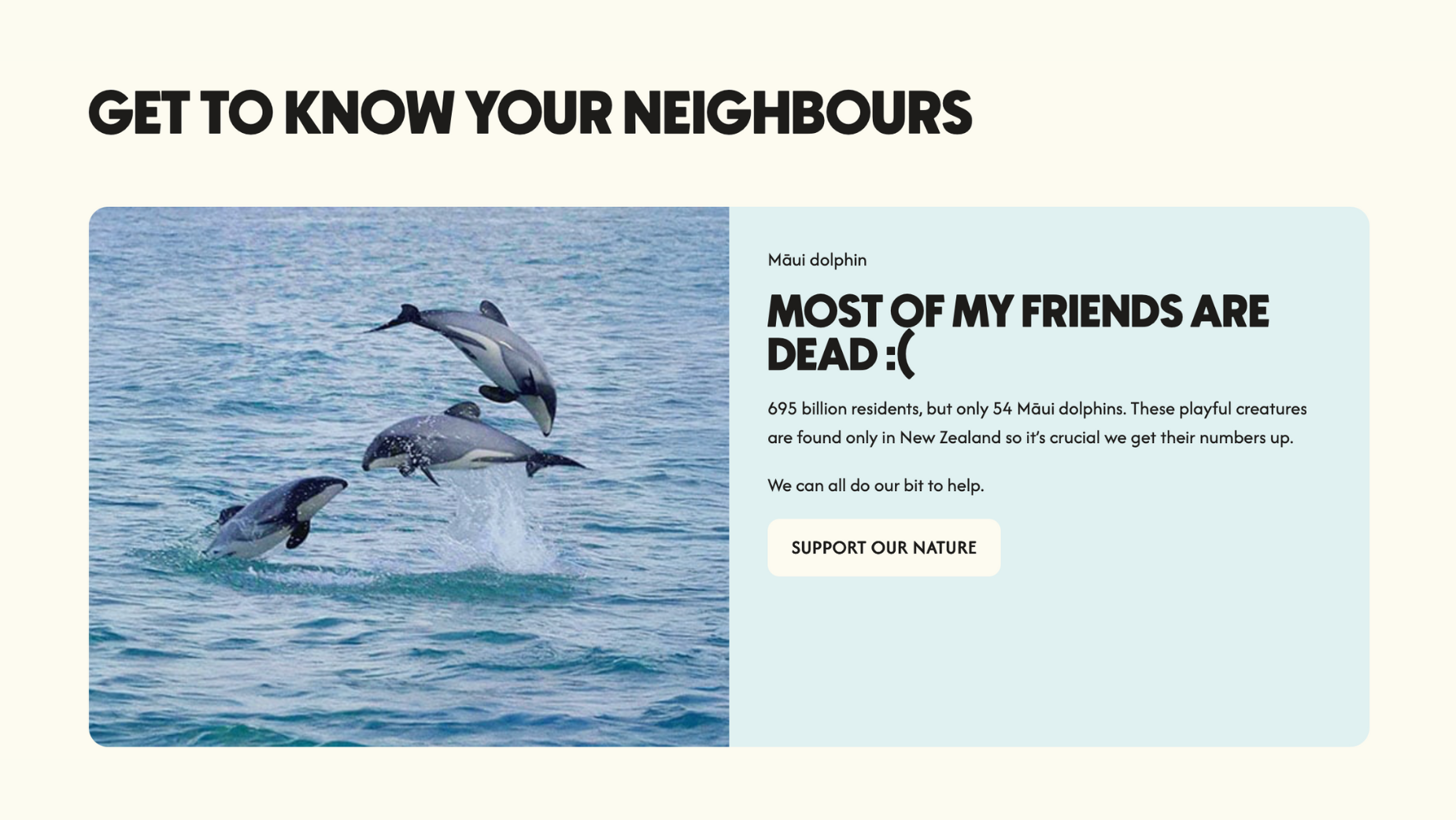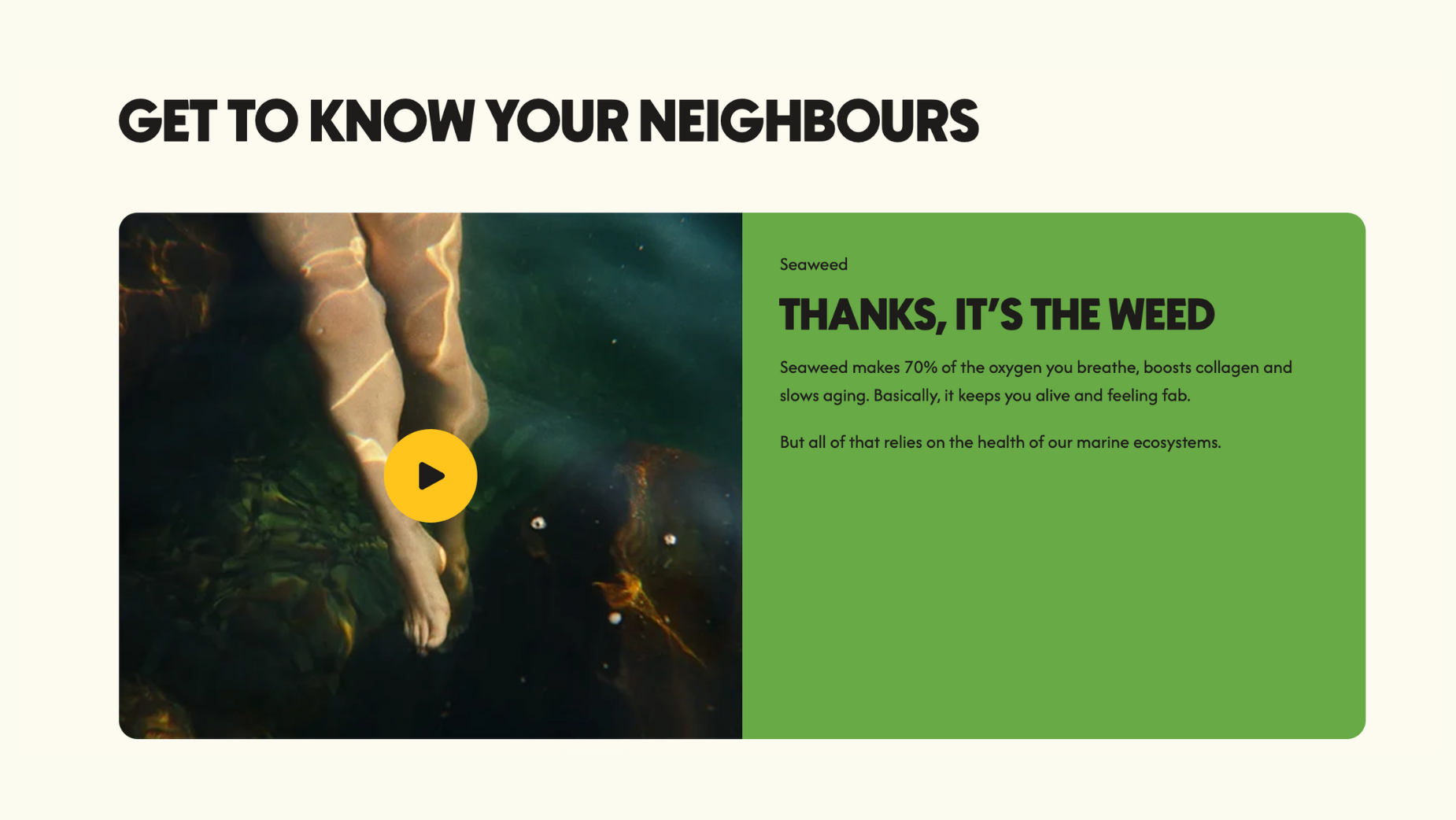
New Zealand Declares Population of 695 Billion to Reflect, Save Nature, JCDecaux Donates Billboards

New Zealand has a new population of 695 billion, according to the Department of Conservation (DOC) and Deloitte Digital, reflecting the country’s animals, birds, plants, marine life, and trees in an attempt to save them.
Out-of-home company JCDecaux donated its worldwide inventory to launch the ‘Always Be Naturing’ campaign, which was made with a small budget, “even by New Zealand standards”, and has the support of businesses like Tourism New Zealand, One New Zealand, and Air New Zealand.
When Deloitte Digital took on the brief in November, the stakes were clear.
“The head of biodiversity at DOC stood up and explained exactly what she could do with the money we were about to spend on this,” Dan Wright, chief creative officer at Deloitte Digital NZ told LBB.
“She was like, ‘I can save this species, I can bring this species back this much, I can change this habitat’. It was basically, ‘Don't fuck it up, because you're spending money that I could use to literally save lives.’”
The campaign launched on September 1st, when New Zealanders woke up to the revised population.
“A lot of this is about showing up for people and nature in a way that they're not totally tired of – being really refreshing, having a sense of humour, taking the piss out of ourselves a little bit,” said Dan.
“We knew we needed to cut through with something that wasn't nature complaining about humans.”
Deloitte conducted research before diving in, and realised whilst 70% of the New Zealand economy is dependent on nature, 90% of people think it's fine – “and it's not.”
Ahmad Salim, managing director of Deloitte Digital New Zealand, told LBB the project went ahead with “an objectively small budget, even by New Zealand standards.”
“DOC have a responsibility to invest every single penny they can into protecting that nature they're there to protect and nurture,” he said.
“Every single cent spent on this campaign is under a microscope. The initial ask was for a campaign that would last three years.
“We've worked with great partners that were as committed to this as we were. We've invested in the program as well and become a partner to the program as Deloitte New Zealand. But as well as that, we were asking what foundations can we build to allow this thing to snowball and build us on momentum even if they can't afford to keep us around? Really focus on the long term, focus on the impact, don't be precious, it's not about us.”

He added there is “a long tail of support for the program – Tourism New Zealand, One New Zealand, Air New Zealand, infrastructure companies like Genesis Energy, Meridian Energy, Fonterra, Silver Fern Farms.
“They all came and sat with us, our CEO, and the director general of DOC, and the leadership all made their pledge to support the program.
“If they all do their piece, it will just make its way into culture and be that part of that identity and something people are much more cognisant of. It is definitely a long game.”
The team wasn’t trying to convince anyone of anything they don't already believe, instead “we just need to make that perspective work harder.”
“We need to capture that perspective, badge it, and drive for national pride rather than the negative,” Ahmad noted.
He said in order to get people to engage with DOC past the initial campaign, “we made it easier for people to take action without having to donate what little money you've got, or clean a beach in order to help protect species. There are things you can do every single day, which ultimately all add up to make that difference.”
The core goal for the campaign is to reframe nature as something that exists within everyday life, not separate to it.
“We wanted to unravel this idea that nature's over there – that it's the thing we go and do on the weekend, and then we come back to our lives in the city where we don't really have much to do with it,” Dan said.
“We’re saying, it’s all of the stuff. It's the food we eat and the clothes we wear, the tree down in the square at the bottom of your office. It's our therapist and babysitter and all of these things, on top of the economic stuff. The thinking was just opening people's eyes to the fact that it's all around us, and we're part of it.”

‘Always Be Naturing’ has also taken off overseas, helped by JCDecaux’s move to spotlight the work on billboards across the world on launch day.
“Kiwis puff their chest out when they know the world's watching them, and this is one of those times,” laughed Dan.
“We want to position this as an idea that feels like New Zealand's got fresh thinking around how we look at nature, and so international eyeballs noticing that stuff sparks something in us. Maybe it's national pride.”
Since day one, it has been critical that ‘Always Be Naturing’ is built for long-term success. Dan said the line itself was designed with the private sector in mind, because it can be freely used or altered depending on how a brand wants to engage.
“That language, ‘Always Be Naturing’, is designed to be evocative out of the gate, but able to be moulded into whatever future need we have, and able to be appropriated by partners too,” he said.
“We want people to take it and run with it. As you can imagine, government budgets aren't enormous. We've done this incredibly efficiently, and the idea behind this launch is that we do it in such a way that we can engage those partners, the businesses, and they can take up some of the momentum moving forward.”










